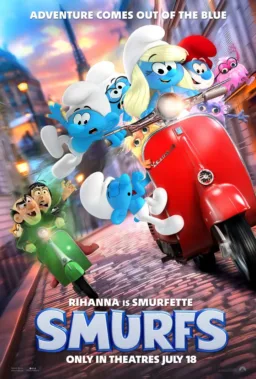Q. Thanks for your enthusiasm over “Princess Mononoke.” I recently defended Japanese animation in my film class, but was shot down viciously by the teacher and others who claimed anime was only “targeted at horny 12-year-old boys.” The teacher seemed convinced that the only Japanese cartoon out there was something he called “Rape Man,” which, apparently, “everyone over there loves.” No one wanted to hear a word I said. (Sean Molloy, Rochester NY)
A. Your teacher would not be able to make such statements if he had the slightest knowledge about anime. I have never heard of “Rape Man,” and could not find it listed in the Internet Movie Database. How remarkable it is the only title that has captured his attention. Show him “Grave of the Fireflies” and ask him what he thinks.
Q. Your review of “Music Of The Heart” talks about how “real” this film is. My brother is the real-life character played by Aidan Quinn, and I grew up in Roberta’s hometown, so I know this story is false. The Central Park East School is not at all as the film portrays it, and the school is so upset about the unfairness and unreality of this film that a note to that effect has been sent home to the parents. Roberta sent her own sons there. It is a progressive, safe, integrated school. The other music teacher was portrayed so inaccurately that I understand he is considering suing for defamation of character. His choruses and yearly opera performances are the equal of the violin program, and my brother speaks of him as an exemplary teacher. The film portrays Central Park East as a sinkhole and Roberta as a heroine who sweeps in and saves it. This is not true. She has an excellent program, but so does the other music teacher and so do the other teachers in the school. If the film chose to use the school’s real name, then the film should also have portrayed the real nature of the school. (Linda Esposito, Rome, N.Y.)
A. The notion of truth in films “based on real life” is filled with pitfalls. It is an ancient Hollywood tendency to skew every story toward the character played by the star, and to punch up the drama, fabricating scenes if necessary. When I see a film “based on a true story,” I assume it will be about as fictional as most films. (The Coen Brothers made a wry nod in this direction when their completely fictional “Fargo” began by claiming to be true.) Regarding “Music Of The Heart,” articles by the AP and New York Times have suggested that many of the facts are not as portrayed. The other music teacher, played by Josh Pais, is such a negative caricature that even while watching the film I had my doubts. I asked Miramax for a response to your letter, and was referred by a spokesperson to this disclaimer in the end titles: “While this picture is based upon a true story, certain characters’ names have been changed, some main characters have been composited or invented and a number of incidents fictionalized.”
Q. Did you note that Chris Farley’s actual brothers played the twins in “The Straight Story?” (Tom Kennedy, Denver)
A. John and Kevin Farley played Thorvald and Rat, the twins who wrangle over repairs to the old man’s John Deere tractor. Their performances do remind me of Chris Farley’s gift for characters who were cheerful despite internal tension.
Q. In “Being John Malkovich,” the character played by John Malkovich is listed in the credits as “John Horatio Malkovich.” Is that his real name? (Casey Anderson, Schaumberg)
A. No. His real name is John Gavin Malkovich. Wonder why they changed it.
Q. How can you berate a masterpiece like “Fight Club,” not recognizing any of the “A Clockwork Orange” aspects of it relating to modern society, and praise “Bringing Out the Dead?” I agree BOTD is a solid film but by no means on the genius level of FC. Fincher’s work doesn’t say it is fun to get hit or that men are men because we fight. I believe he’s using this as a metaphor for the lack of a struggle we as young men have today. There are no World Wars to engage in, no social revolutions to define us. We as a group are internally battling with our identities and how to function within this mind-numbing product-oriented life. I wish you would reevaluate this film and look at it through less literal eyes. By accusing it of being pornography and violently inciteful, clearly begging for it to be censored, haven’t you become what you so fervently preached against this summer regarding the MPAA and “Eyes Wide Shut?” (Jason T. Howell, Tallahassee Fl)
A. If this movie takes the place of war in your attempt to define yourself, I don’t think its message is getting through. Paul Schrader, who wrote “Bringing Out the Dead,” talks of two kinds of characters–those who elucidate, and those who remain mysterious. He prefers the latter, and so do I. He also says he prefers the existential mode to the ironic mode. Me too. BOTD is mysterious and existential; FC is ironic and elucidating. Take your pick.
Q. My theory about “Fight Club:” The main characters live on Paper St. It’s also the name of their soap company. The Narrator identifies with a character out of a magazine whose name is Jack (“I am Jack’s diminishing self-worth”). Together, this makes Jack Paper. Jackie Paper, you’ll recall, is the name of the main character’s alter-ego in “Puff the Magic Dragon,” a free-spirited, ocean mist-frolicking type of kid. (Sandor Weisz, Chicago)
A. You are inciting me to thought.
Q. In your recent review of “Three To Tango“, you mentioned that Neve Campbell had “intelligent breasts,” which obviously made me wonder, what would classify as ignorant breasts? (Michael McDuff, Sydney, Australia)
A. Those that don’t encourage your best thinking.











